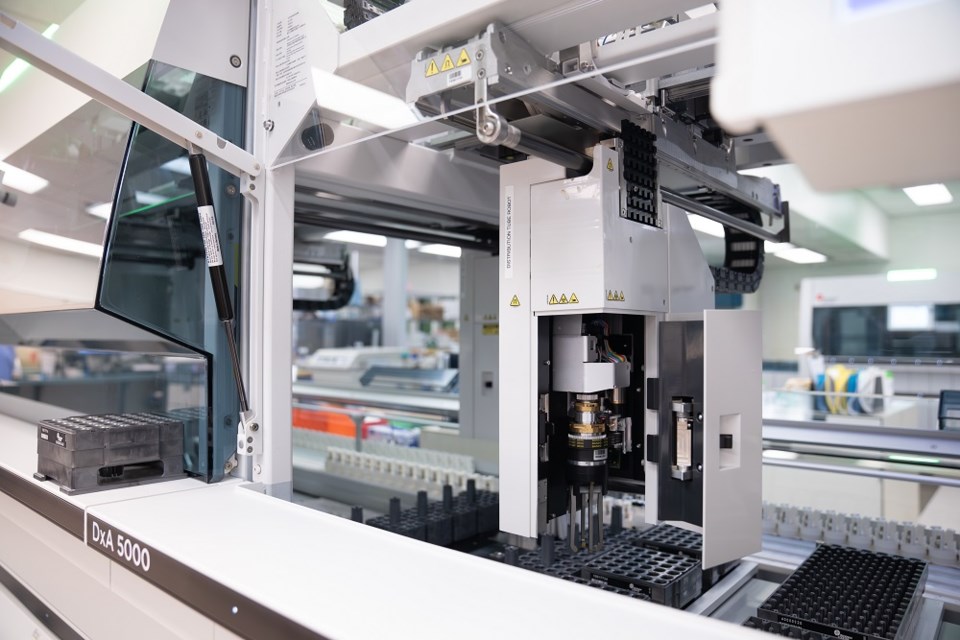Fraser Health says new technology will help get lab results faster at Burnaby Hospital.
The health authority says a new $1.5 million system, the Beckman Autoline DxA 5000, moves test tubes between analyzers which will "enable efficient and consistent" processing of blood samples.
Barcode scanning identifies samples and automatically performs the required tests, which Fraser Health says will ensure precision and reliability of results.
“Many patient care decisions rely on lab results, and now we can provide those faster due to automation helping with simpler tests,” the Regional Medical Director of Laboratory Medicine and Pathology Program for Fraser Health Dr. Carolyn Shiau said in a news release.
“This will increase capacity and allow our laboratory team to dedicate more time to more complex laboratory testing.”
Burnaby Hospital's laboratory processed more than two million tests last year, according to the health authority.
With expected population growth, more tests are expected to be performed during this year.
Fraser Health says the technology will also improve safety practices by reducing exposure risks that can happen during laboratory work.
"The Autoline moves the sample through various stages on a conveyor-like system, like a little train track. This is taking the most basic routine work and automating it," Fraser Health Regional Head of Medical Biochemistry Dr. Richard Cleve added.
“It's efficient and keeps our laboratory staff focused on more complex tasks."
Burnaby is the first of four Fraser Health sites to receive the Beckman Autoline DxA 5000 this year.
Royal Columbian Hospital, Surrey Memorial Hospital and Abbotsford Regional Hospital will receive the systems early next year.



